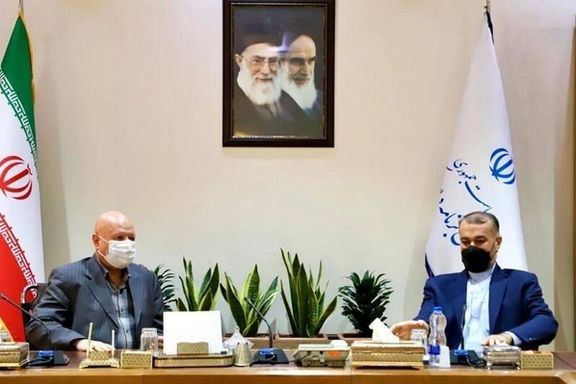Iran Plans Next Budget On Assumption Of Continuing Sanctions

Iran is planning its next budget on the assumption that US economic sanctions will continue, but is forecasting more than one million barrels p/d oil exports.

Iran is planning its next budget on the assumption that US economic sanctions will continue, but is forecasting more than one million barrels p/d oil exports.
In a meeting with Foreign Minister Hossein Amir-Abdollahian the head of Planning and Budget Organization Masoud Mirkazemi expressed hope that US sanctions will be lifted but said the budget is being planned on the assumption that sanctions will remain in place.
Iran’s new budget will go into effect in March 21, 2022 when the new Iranian calendar year starts.
US sanctions imposed in 2018 by former President Donald Trump, who withdrew from the Obama-era nuclear deal with Iran, have crippled normal and legal oil exports, denying Iran roughly 50 percent of its budget income.
The government has resorted to printing money and borrowing that have led to 50 percent annual inflation and a ninefold decline in the value of the national currency compared to 2017.

However, illicit oil exports said to be going mainly to China have increased since September 2020 and provide Iran with an undisclosed amount of revenue. But the nature of the illicit trade would certainly reduce the amount of foreign currencies Iran can receive. Middlemen who facilitate such shipments of oil make hefty profits and Iran must charge much less than global oil prices to entice buyers.
The Iranian Labour News Agency, ILNA reported on Monday that revenues forecast in the budget draft are based on exporting 1.2 million barrels of oil per day. Last year’s budget was also based on the same calculation, but clearly Iran this year has grappled with a 50-percent budget deficit. The reason is that with sanctions in place Tehran was never able to sell that amount of oil with market prices.
President Ebrahim Raisi’s administration needs more income it cannot get from oil exports, yet it has pledged to print less money to control inflation. To deal with this economic quandary, the president on Tuesday ordered his ministers to accelerate the sale of “unwanted government assets”.
Iran’s government is the biggest owner of industrial and financial companies in the country, with their huge assets, after more than four decades of implementing a quasi-state-controlled economic model. But selling assets amid a lack of money in the hands of banks and investors is not an easy or profitable venture. A grim political and economic outlook is another factor inhibiting government efforts to raise money.
Iran is currently engaged in nuclear talks with the world powers that are meant to bring back the United States in to the 2015 nuclear agreement, the JCPOA. This would lift the most damaging sanctions and provide a financial lifeline to Iran. Both foreign and Iranian media and observers are not very optimistic about a quick and positive outcome.